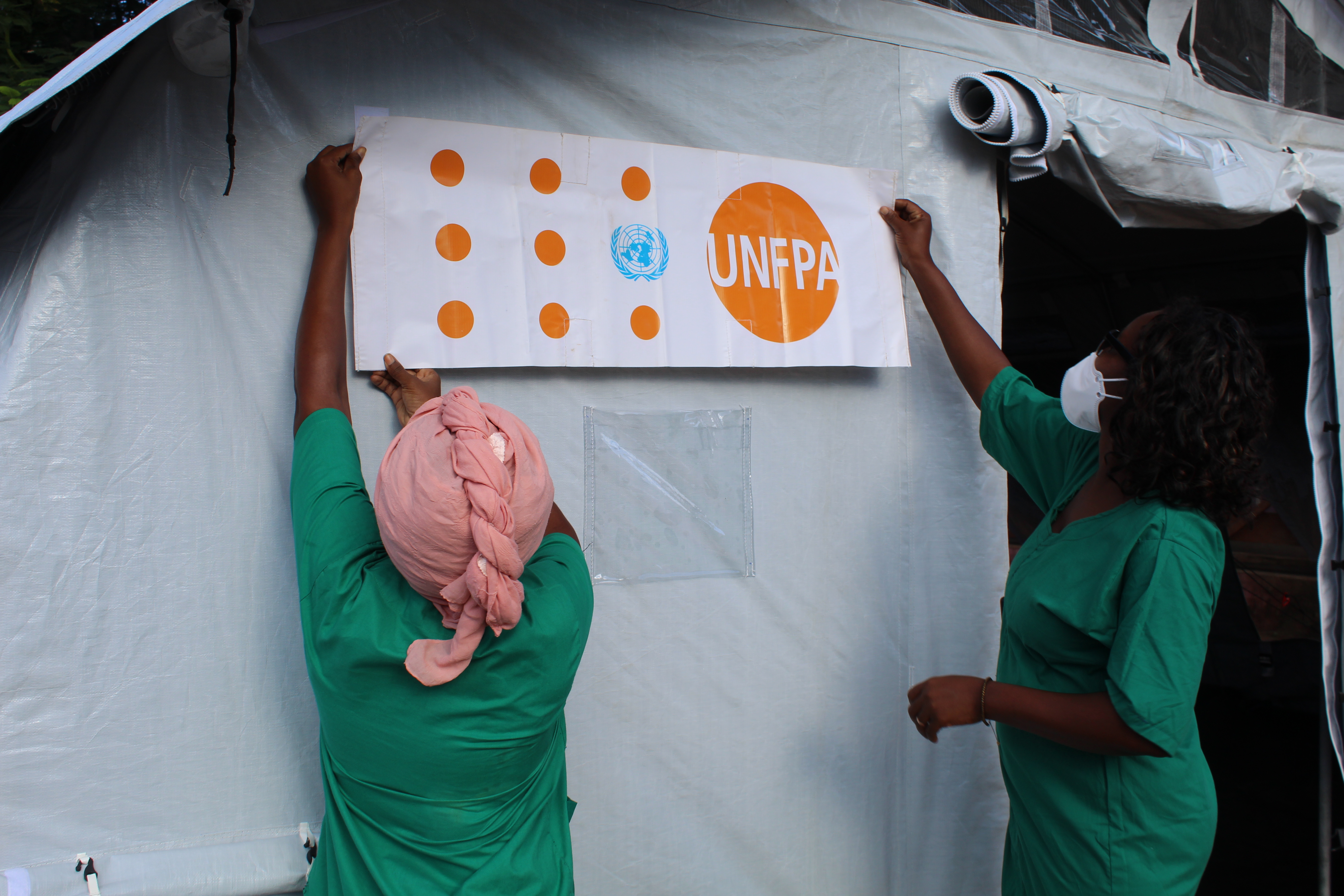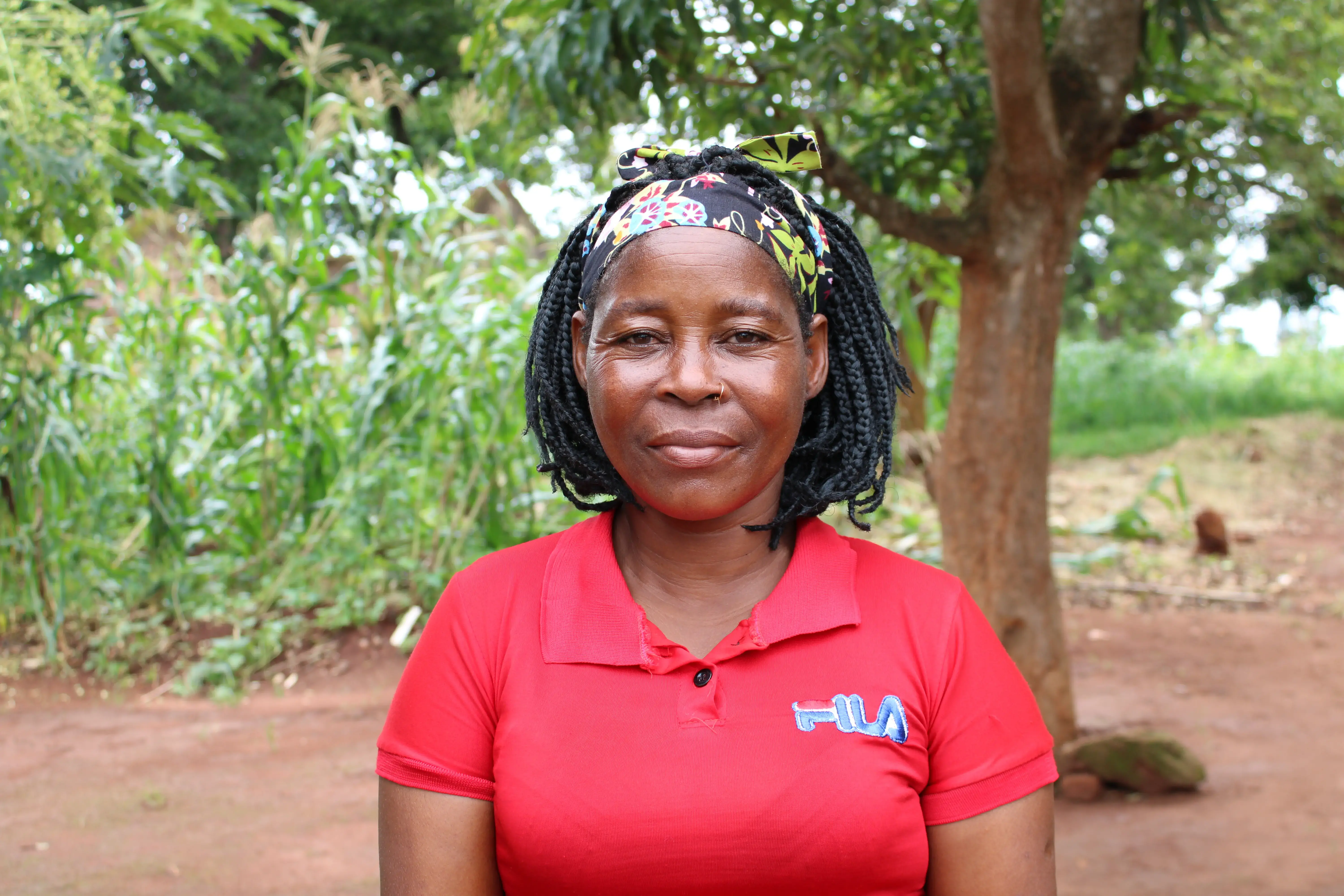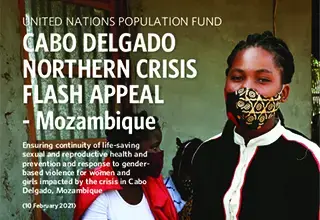This week, the Provincial Health Directorate of Cabo Delgado (DPS) - through the support of UNFPA - delivered and installed six new tents across four health units in the district of Pemba. The district was impacted by Cyclone Kenneth, which made landfall in Northern Mozambique on April 25 2019, one month after Cyclone Idai, and further impacting an estimated 227,000 people in Cabo Delgado province.
The newly installed tents will be crucial in the prevention of COVID-19, as they will allow for adequate distancing in the health units, particularly for prenatal consultations and for girls and women who may require more medical attention. Data from 30 March estimates that these six tents will support 6,280 women and girls who seek pre and post-natal care, family planning consultations and require follow-up. This number is likely to increase in April.
Previously, limited space in the health clinics would mean that patients with the flu or other illnesses could put those in pre- and post-natal care at risk, as well as those seeking or continuing with contraceptives.
The continuation of sexual and reproductive health services and maternal health services are critical because basic health needs, particularly pre- and post-natal care, remain the same even during a crisis. Unwanted pregnancies and complications in pregnancy and childbirth are still risks that are increasingly faced by the most vulnerable women and girls during crises.
The administrative staff, nurses, doctors and health personnel showed their satisfaction and appreciation for the installation of the new tents by participating themselves in erecting the tents. Now, they can limit the risk of girls and women who require screening services and work under safer circumstances.
“The tents are very important because they will reduce our concerns about the need for increased physical space in light of COVID-19. For example, the room we were using for tuberculosis and respiratory-related consultations is the same room we used for adult screening and injections. And this room is next to the maternal and child health (MCH) consultation room. Therefore, with these new tents, we will be able to isolate patients and separate the services, prioritizing the protection of women and girls who are seeking MCH consultations (including pre- and post-partum care and family planning),” shared Rodrigues Armando, Director of the Mahate Health Center.

As part of the intervention, Provincial Health Directorate and UNFPA held orientation sessions briefing staff on the importance of comparing and analyzing data, in order to measure the impact of this work in action.
“One of the major concerns that has always arisen during meetings held by the health center in the district has to do with waiting times and the eventual exposure of patients to COVID-19. With these new tents and services, we intend to analyze the relationship between the patient's waiting time at the health center and the number of visits made, in order to reflect the most requested services and the respective evolution of the virus. Subsequent work sessions were scheduled at each health facility,” states Alexandre Muianga, Gender-Based Violence Coordinator, UNFPA Cabo Delgado. “The next challenge, in my view, has to do with the need to support the health sector with nurses and equipment to reinforce services as we want patients to continue to seek SRH services.”
During the installation and orientation sessions, all safety protocols and standards for prevention were obeyed, including distancing between team members, consistent hand washing and the use of health masks, provided by the DPS.
It is anticipated that the lack of health services following the COVID-19 outbreak will impact the sexual and reproductive health services and support that are critical for women and girls, and further put these individuals at risk of further complications. The procurement and installation of such tents, supported by UNFPA, aims to minimize those risks.
UNFPA continues to distribute female ‘dignity kits’ in cyclone-affected areas in Sofala province with additional COVID-19 preventive items such as extra soap, whistles for safety, and IEC materials to mitigate risks related to COVID-19. In addition, the agency is procuring additional tents for health services, ensuring the availability of contraceptives, and supporting the Ministry of Health with the training of health professionals.




